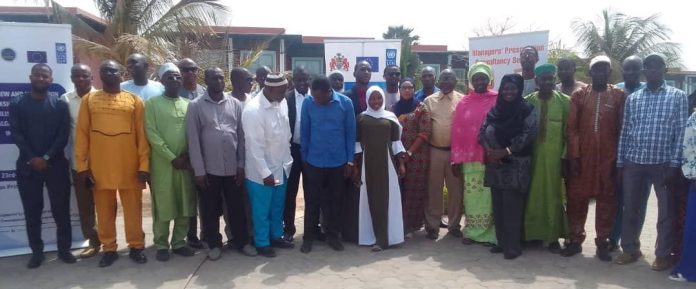By Nelson Manneh
The Gambia Association of Local Government Authorities (GALGA) on Wednesday, 23rd April 2025, convened a strategic engagement session with the country’s eight local government authorities (LGAs) to discuss and refine approaches to resource mobilisation aimed at strengthening local governance and sustainability.
GALGA, which has represented the interests of Gambia’s LGAs since its establishment in 2002 and formal recognition by the Ministry of Justice on September 7 of the same year, continues to serve as a key platform for enhancing cooperation, transparency, and accountability among local councils.
The initiative, supported by the Commonwealth Local Government Forum (CLGF), includes the development of two Resource Mobilisation Strategies—one for GALGA itself and another tailored for its eight member councils. However, these documents are yet to be reviewed and validated due to funding limitations.
The strategies are a response to the findings of a Needs Assessment Report by the Ministry of Lands and GALGA, which recommended a shift towards self-sufficiency and own-resource mobilization to ensure long-term sustainability of local councils.
Amadou Jallow, GALGA’s Head of Programs, said the initiative aims to support constitutional and legislative reforms to strengthen the country’s governance model. “It seeks to protect human rights and fundamental freedoms, including the rights of minorities and the most vulnerable, prioritising citizens within the decision-making process and relying on citizens’ participation to advance local governance structures,” he said.
He added that the project contributes to transitional justice, strengthens rule of law institutions, and builds the technical and infrastructural capacity of local governance bodies to enhance their effectiveness.
GALGA President Muhammadou Ceesay emphasised the urgency of local resource mobilisation, saying the meeting was not only about reviewing the strategies but also about paving the way for effective local fundraising.
“Local resources mobilization is the way out; we have seen how difficult it is now to attract external funding. If we want to implement our local projects, we should look at how to mobilise resources locally,” he noted.
He stressed that GALGA is committed to aligning council operations with national development goals while promoting collaboration, stakeholder engagement, and public education.
“Since its inception, GALGA has worked tirelessly to enhance the capacity of Local Councils and their sub-structures,” he said.
Ceesay noted that the association continues to empower councils through training, technical support, and resources, while also promoting grassroots engagement to ensure citizens understand the roles and responsibilities of their local governments.
James Monibah, Project Specialist at UNDP The Gambia, described GALGA’s resource mobilization document as a roadmap for self-reliance. He said it encourages public participation and ensures transparency and accountability in council operations.
“GALGA serves as a unified voice for LGAs, championing their interests at the national level and fostering partnerships with development agencies, civil society organizations, and other stakeholders,” Monibah remarked. “Through these efforts, GALGA aims to build a robust framework for sustainable development, ensuring that LGAs are well-equipped to meet the evolving challenges of local governance in The Gambia.”


















